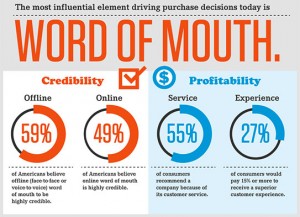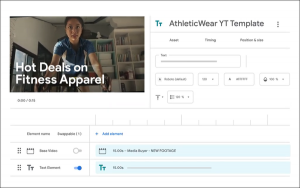
When Facebook came on the scene, it changed the way we all approach social media. It set the standard for how social networks should proceed, and it quickly became the biggest player in the game.
Pinterest was another game changer. Soon after it arrived on the scene, it because the fastest growing social network in history. There was no other site like it, and it soon became a major influencer in the field, causing marketers to rework their strategies and inspiring dozens of knockoff sites.
We know that social media is here to stay, but it remains to be seen how it will evolve. We are sure that as technology evolves and user behavior changes, social media will also see major changes. We’re just left wondering what the next major social media disruption will be.
What Makes a Disruption?
To start, we need to understand exactly what counts as a “disruption.”
Just introducing a new social media site is not a disruption. If that were the case, hundreds of social media sites that have been introduced and fizzled out would all count as disruptions, and they certainly were not.
to count as a true disruption, a new site or technology would need to be:
- Timely. Technological evolution can happen very slowly or seemingly overnight. To disrupt the social media landscape, a disruption needs to occur very suddenly, almost immediately. Mobile apps are an example of a slow evolution since it took years for people to use them to access to social media. Facebook Live was an immediate change because it was introduced and embraced quite quickly.
- Significant. No site or technology can be considered disruptive if it doesn’t make a major impact. For example, the new emoji reactions that Facebook offers in addition to the traditional “like” have not made a significant impact because they only minorly changed the way people interact with updates. However, Snapchat’s filters and lenses could be considered a disruption since they really changed the way people could post photos and videos.
- Reach. To be a disruption, a technology or site also has to reach a wide range of people or affective a large number of apps or devices. Therefore, if a small site offers a new feature that only affects users of the site, it cannot be disruptive. But if Facebook introduces a new feature that catches on with all its users and then inspires other sites to offer something similar, that is disruptive.
Having a basic definition for what can be considered disruptive helps us to evaluate new technologies and sites. Then we can see if a change is going to seriously influence the future or if it is just another passing novelty.
Potential New Disruptions
Facebook is the largest social media influencer, and it will continue to be for the foreseeable future.
Because of what many refer to as “the Facebook effect,” it is not likely that another social media site will emerge and attain much influence. So it may be a while before we see the next great disruption.
However, some potential disruptors could come from:
- Current sites. To take power, you have to already have some power, and there are many social media sites that are in the right position for that. Twitter, especially, could become the next big disruptor. It was a disruptor when it started, and it continues to be one of the top social media sites. It could evolve and provide new offerings, allowing it to take the lead from Facebook or to introduce a feature that could disrupt the landscape.
- Gimmicks. Gimmicks are usually dismissed as novelties that fizzle out as quickly as they are introduced, but some innovations started as gimmicks. Since gimmicks start out as fads, essentially, they gain a lot of attention right away and pick up steam. The next disruption could come from a gimmick that never loses its momentum. The gimmick could either become the next big thing, or it could influence other sites to offer similar features.
- Hardware. Think about how mobile changed the social media landscape when it took off. Now think about what could happen if virtual reality headsets take off. Or if smart watches or other smart devices become the next big thing. We could be entering a bold new world for social media and the Internet.
When these elements come together with the right timing and the right reach, we’ll be looking at something new and exciting for how we experience social media.
Whatever changes come for social media will make big changes for the online landscape and for marketers in general. It is important that you keep up with what changes are happening and be flexible enough in your marketing plans to adapt to them. You don’t want to be the person who is just getting on Facebook after years of it being the next disruptor.
Digital & Social Articles on Business 2 Community(30)
Report Post





